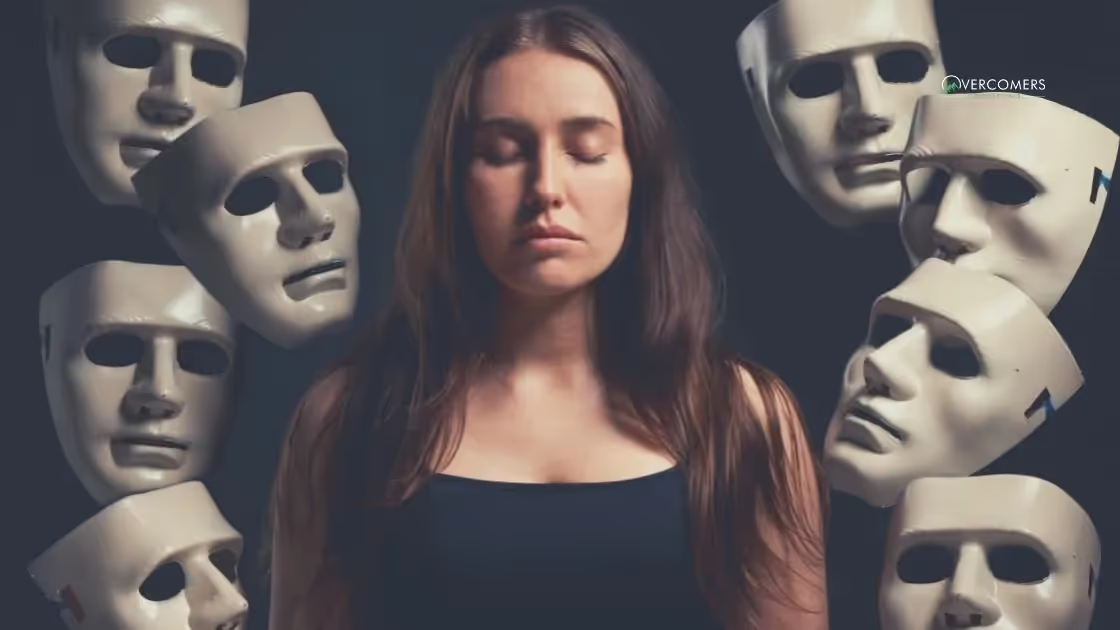Relationships aren't a walk in the park. They take time and effort to work. The same thing goes for relationships where one person is bipolarHowever,...

Relationships aren't a walk in the park. They take time and effort to work. The same thing goes for relationships where one person is bipolarHowever, relationships with a bipolar person take a little extra effort. You would need to be more understanding, patient, and enlightened.To make your relationship work out, you need to broaden your knowledge of bipolar disorders.This goes beyond what it means. You have to learn the triggers, behaviors, and how to manage them.
Know that not every individual with bipolar disorder has triggers. Sometimes bipolar episodes don't need a trigger, they just happen.Here are some common triggers;
These are the common triggers amongst individuals with bipolar disorder. However, it is best to ask your partner what their triggers are. This way you know what to expect when to expect it, and what can be done.Asides from learning their triggers, if your partner has bipolar disorder, they will display certain qualities or episodes. Let's talk about those qualities.

Depressive episodes cause your partner to suffer from major depression, feelings of hopelessness and despair, and a lack of interest in sexual activity and communication.When all or some of these symptoms play out, it isn't a sign that your partner is tired of the relationship. So it's best to know when to spot the signs of a depressive episode in a partner.
This is the major symptom of bipolar disorder. It is characterized by high energy, excitement, and euphoria over some time. Manic episodes feature a major mood change that can possibly interfere with your partner's daily life, work, and even school. Manic episodes may cause your partner to exhibit reckless behavior like excess drinking, and exorbitant spending amongst other things. When you see your partner showing these signs, you have to be understanding. Try to help them without judgment.
This is definitely the worst of the three. Just as the name implies, this episode is a combination of depression and mania episode. Your partner may exhibit symptoms of depression while still having a lot of energy or making decisions on impulse.This is never an easy time for your partner, as it can be really confusing and overwhelming.There is no doubt you would want to help your partner during their episodes. Or do your best to prevent them while still keeping the relationship healthy. Here are some ways to do that.
The only way to solve a problem is to learn about it and understand it. So to help your partner cope with bipolar disorder, you have to learn about it. Read books about it, research from notable websites, and speak to specialists. Gather as much information and knowledge about the disorder as possible. Another way to educate yourself is to speak to your partner. This is another way to learn about the disorder in a way that makes it easier to cater to your partner's specific needs. Ask your partner about their triggers and behaviors. Learn what behaviors they may exhibit as a result of the disorder. Learn what is normal for them and what isn't. Learn about their triggers, so you know what to avoid doing. You will also know what is likely to happen when triggered, so you'll plan.

The stress and exhaustion from dealing with a mental illness affect both the sufferer and their partner. Although, it is heavier on the former. This is why you and your partner must communicate all the time. Talk about how you are feeling, talk about the effect the disorder is having on you, and how it's affecting you. This goes both ways. When speaking to your partner about how their condition affects you, do so with the utmost respect. Do not judge, stigmatize or chastise.
Discuss with your partner about their treatment plan and find ways to assist. Ensure that whatever mode of assistance you pick doesn't come off as intrusive to your partner. If your partner decides not to reveal all the details of their treatment, respect their decision and find other ways to assist. You can create a plan or a support system. A plan can involve making lifestyle adjustments or changes during episodes to help your partner. A support system involves having a therapist or family member/friend to call in dire times. All these are ways to assist your partner with their treatment. You can also come up with more helpful ways.
Self-care is extremely important. It's not just for keeping the body in one piece but also for keeping the mind healthy. Self-care can make a significant difference in one's mental health. It is key that you and your partner practice self-care. Self-care is subjective, so it's up to you and your partner to decide what exactly you both want to do. However, here are some things you both can do;
It doesn't matter what you pick as a means of self-care (it has to be something legal and positive), the most important factor is it must take the stress and edge of your relationship. It should also be a way to bond and keep the relationship stronger.
Although it may seem impossible, a healthy relationship with a person with bipolar disorder is possible. Yes, it will require extra work. Yes, there will be bad days. However, with the right attitude, knowledge, loads of love, and understanding you and your partner will have a fulfilling relationship.
https://www.healthline.com/health/bipolar-disorder/relationship-guide
https://www.verywellmind.com/dating-someone-with-bipolar-disorder-380584
Living with bipolar disorder can feel like riding a roller coaster you didn’t exactly sign up for—episodes of deep depression on one end and bursts of high energy or euphoria on the other. Everyone’s experience looks a little different, and at Overcomers Counseling, we recognize that your story deserves to be understood on its own terms.
There isn’t one single cause of bipolar disorder—it’s usually a blend of genetics, brain chemistry, and life experiences like stress or trauma. Think of it as a complex puzzle with several interconnected pieces. When you’re ready to make sense of those pieces, Overcomers Counseling is here to help you put the picture together.
Absolutely. Bipolar disorder may be a lifelong companion, but with consistent treatment and support—like the kind offered at Overcomers Counseling—you can build a life that feels steady, healthy, and genuinely yours. Think of it like learning to drive on a windy mountain road: tricky at first, but totally manageable with the right guidance.
Supporting someone with bipolar disorder starts with compassion, patience, and a solid understanding of what they’re navigating. Offer steady emotional support, encourage them to stay connected to treatment, and avoid taking their symptoms personally. And remember, caring for yourself matters too. Overcomers Counseling can help guide both you and your loved one through these ups and downs.
Five common signs of bipolar disorder include dramatic shifts in mood, energy, and activity levels. This often shows up as episodes of mania—high energy, excitement, or irritability—and episodes of depression marked by sadness or hopelessness. Other signs may include disrupted sleep, racing thoughts, and impulsive or risky decisions. If these sound familiar, Overcomers Counseling can help you sort through the noise and find clarity.